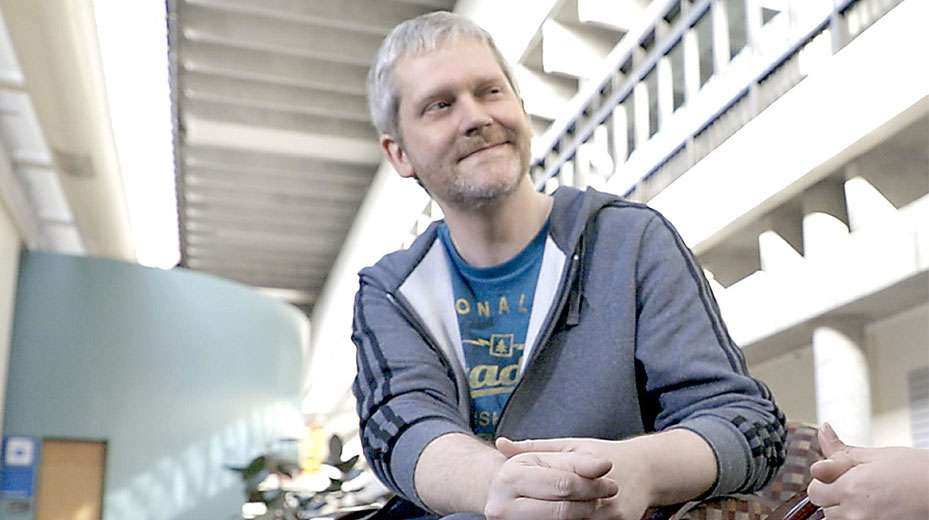Most of my practice has been with victims of child
sexual abuse
, non-offending parents, offending parents and sexually reactive children.
Bi-lingual: Korean-American Marriage and Family Therapist in Los Angeles County – Just minutes from Koreatown and Hancock Park area.Although looking in the mirror may not seem so difficult, looking beyond what is on the surface and into our souls – it can be. What everyone sees on the outside may not be how it feels inside. What seems small to others may be life changing for you.How do you cope with what life brings to you? How is it working for you?
Open Space Therapy Collective
Licensed Professional Counselor, LPCC 6018
People in the Queer and Trans community have a unique way of being in the world. You need a therapist who is part of the LGBTQ community and understands what it’s like to be a nonbinary or queer person. Someone with personal experience living your truth can provide the support you need. You need a therapist who knows that being truthful can make you feel separate from everybody else. Connecting with a therapist who understands can help you embody your most authentic self.
Los Angeles, CA 90026
2.1 Miles away
Provides Sexual Abuse or Assault Therapy
Trauma is a deeply distressing or disturbing experience that happens to an individual, a family, and/or to a culture. These events or situations are so emotionally painful and disturbing that they often overload a person’s ability to cope. According to the American Psychological Association, “Trauma is an emotional response to a terrible event like an accident, rape or natural disaster. Immediately after the event, shock and denial are typical. Longer term reactions include unpredictable emotions, flashbacks, strained relationships and even physical symptoms like headaches or nausea. While these feelings are normal, some people have difficulty moving on with their lives.” (APA.org).

During infancy or childhood the trauma of abuse and or neglect can induce terror without the ability for the defense system to fight or flee. In this case the freeze response causes the traumatic affect to become encapsulated in the body and split off from conscious memory. This type of trauma may go unrecognized but telltale symptoms may linger on.
Different Types of Trauma Therapy Near Me
During infancy or childhood the trauma of abuse and or neglect can induce terror without the ability for the defense system to fight or flee. In this case the freeze response causes the traumatic affect to become encapsulated in the body and split off from conscious memory. This type of trauma may go unrecognized but telltale symptoms may linger on.
“When the brain is integrated, it is optimally functioning…When you are not traumatized your brain is integrated in creating a flexible, adaptive, and coherent flow that is energized and stable. Trauma impairs integrative functioning in the brain… Reintegration is what repairs the brain…Give psychotherapy and let the relationship develop the integrative fibers of the patient’s brain.” – Dan Siegel
 Shock Trauma will more often be a singular event such as witnessing injury or death or facing imminent threat of injury or death. A person experiencing a shock trauma may feel horror, helplessness and terror. Developmental trauma is generally a chronic trauma that occurs repeatedly such as physical abuse, sexual abuse, childhood neglect, domestic violence or bullying. These repetitive behaviors occurring over time end up being a part of one’s experience of the world, coloring how they see, experience, and live in the world. These types of traumas effect the “development,” of a person’s sense of self and sense of others.
Shock Trauma will more often be a singular event such as witnessing injury or death or facing imminent threat of injury or death. A person experiencing a shock trauma may feel horror, helplessness and terror. Developmental trauma is generally a chronic trauma that occurs repeatedly such as physical abuse, sexual abuse, childhood neglect, domestic violence or bullying. These repetitive behaviors occurring over time end up being a part of one’s experience of the world, coloring how they see, experience, and live in the world. These types of traumas effect the “development,” of a person’s sense of self and sense of others.
In either Shock or Developmental Trauma a child, teenager or adult may have enough resiliency and enough “good” connections to be able to stay regulated through stresses of daily life. However, these events may lead to intense distress, overwhelming one’s ability to cope. The individual may experience sleep difficulty, attention difficulty, anger and irritability, intrusive thoughts, withdrawal, or distress when reminded of their experience. As noted by the national child traumatic stress network, “Trauma can lead to the development of posttraumatic stress disorder, depression, anxiety, and a variety of behavioral disorders.” The developing brain and nervous system can be affected by repeated or singular trauma, leading to difficulty with regulation/dysregulation systems. Individuals can be effected in an ongoing family and peer relationships.
In either Shock or Developmental Trauma a child, teenager or adult may have enough resiliency and enough “good” connections to be able to stay regulated through stresses of daily life. However, these events may lead to intense distress, overwhelming one’s ability to cope. The individual may experience sleep difficulty, attention difficulty, anger and irritability, intrusive thoughts, withdrawal, or distress when reminded of their experience. As noted by the national child traumatic stress network, “Trauma can lead to the development of posttraumatic stress disorder, depression, anxiety, and a variety of behavioral disorders.” The developing brain and nervous system can be effected by repeated or singular trauma, leading to difficulty with regulation/dysregulation systems. Individuals can be effected in ongoing family and peer relationships.
Trauma Treatment Center Los Angeles CA
An individual experiencing trauma can become so overwhelmed at the time of the event that they separate from self (dissociation) and thereby this becomes a lifelong strategy to protect oneself but to the individual, it may just feel like a numbing out or disconnection. In addition, the events may have occurred preverbally so there are no words to describe them nor explicit memories just an internal feeling of distress and lack of safety in the world.
At our outpatient trauma therapy center in Los Angeles we know that we can hold trauma in our body and in our cells, leading to ongoing distress, physical symptoms, possibly even autoimmune disorders, migraines, and anxiety. We can hold trauma in our emotions leading to depression, fear, alienation from others. Trauma therapist can hold trauma in our minds leading to a projection of distrust and lack of safety with others and future prediction of hurt. Traumatic experiences can lead to difficulty connecting with others, with attunement to self, with the ability to trust, with the ability to become autonomous and independent, and with the ability to connect intimately with others.
“Being emotionally overloaded for extensive periods of time can cause not only long-enduring states of stress, but also chronic dissociation …. We are trapped in a rigid way of being. We cannot cope with emotional stress, cannot grow emotionally, and cannot attain an emotional security.” – Allan Schore
What is Trauma?
The American Psychological Association describes trauma as “an emotional response to a terrible event such as an accident, rape or natural disaster. Immediately after the event, shock and denial are typical. Longer term reactions include unpredictable emotions, flashbacks, strained relationships and even physical symptoms like headaches or nausea. While these feelings are normal, some people have difficulty moving on with their lives.”1
Many people have stopped watching the news because it makes them feel awful due to the heartbreaking and terrible things happening out there. We are constantly surrounded by traumas such as shootings, kidnapping, homicides and serial killers. Although those stories are on the news every day, there is one type of trauma that does not get to be shared on the media despite its high prevalence: SEXUAL ASSAULT. Unlike other types of trauma, sexual trauma survivors often carry the blame and shame, which make incredibly harder to report and further discourage them to seek any help. In any case, no matter what, it is never the survivor’s fault. It seems that the fact it isn’t talked about is another example or a parallel process that makes these events feel even more shameful to the victims. In other words, discussing it openly and regularly is essential if we want to help the survivors be heard and the community to be compassionate and aware of these painful experiences.
Sexual Assault and the Importance of Consent
Sexual assault refers to any sexual contact or behavior without one’s explicit consent. The forms of sexual assault include attempted rape, unwanted sexual touching/fondling, forced sexual activities, and rape (both stranger and acquaintance). In other words, the existence of one’s consent is the most important factor in distinguishing if an incident fits the criteria for sexual assault. If there was no explicit consent, then any sexual activity can be considered as sexual assault.
According to the RAINN (Rape, Abuse & Incest National Network),2 every 98 seconds another American is sexually assaulted, and 1 out of every 6 American women has been the victim of an attempted or completed rape in her life time. These statistics show how prevalent sexual assault is even though we do not see or hear much about it in our daily lives. Furthermore, out of every 1,000 sexual assaults, only 310 are reported to the police. From this information, we can infer that there are countless number of unreported sexual assault cases and deduce their prevalence is in our society.
The American Psychological Association further elaborates that “sexual abuse is unwanted sexual activity, with perpetrators using force, making threats or taking advantage of victims not able to give consent. Most victims and perpetrators know each other. The chance of experiencing sexual abuse from a stranger is significantly lower than from an acquaintance, which further complicates reporting the assault.
Immediate reactions to sexual abuse include shock, fear or disbelief. Long-term symptoms include anxiety, fear or post-traumatic stress disorder. While efforts to treat sex offenders are still a work-in-progress, psychological interventions for survivors – especially group therapy – appear effective.”1 This information tells us what sexual assault is, and it is hugely important that we all understand the definition and criteria. What it doesn’t and cannot tell us is what it is like for the survivors. That is something that each survivor needs to figure out on her, his, or their own.
Throughout their own healing process, the survivors can find peace within themselves, which begins by being able to take the blame off from oneself to accepting that the assault had happened, and seeking support from not only professionals but also from one’s loved ones. Since it is so easy for the survivors to believe that they are the reason that the assault has happened, it often leads them to suffer alone. In reality, nothing that they have done is wrong or caused the assault in any way. It is even possible that at this moment, YOUR LOVED ONE may go through something like this or YOU ARE GOING THROUGH IT ALONE. Group therapy provides an opportunity for the survivors to realize that they are not alone. Eventually, the survivors of trauma can find the capacity to overcome the pain, isolation and shame through the group process.
Group Therapy at WILA
At Wright Institute Los Angeles, we offer a group therapy called VOW.
VOW stands for Voices of Warriors and is a trauma-focused group for women who have experienced any type of sexual trauma or sexual assault(s). Many survivors, as they contemplate joining the group, might be thinking that you should not be sharing your secret with other people. That typically happens when you experience this traumatic event because it feels so shameful that it happened to you. Or sometimes, you may feel as if you put yourself into that situation thus, you do not deserve to be held, supported, loved.
The goal of group psychotherapy, especially a trauma-focused one, is to allow the survivors to recognize the patterns of denial, self-blaming, and silencing thoughts and/or beliefs by sharing their experiences within the group. This process can provide the survivors a healthy understanding of themselves, which in turn can allow them to live the lives that they truly deserve. What allows this transformation to happen in the group is a sense of connectedness. By sharing your own traumatic experiences and how it has affected your life, bonds are created among the members. With one another, you work can through the debilitating and unhealthy dynamics you have found yourself in following the assault.
In such a safe space, what doesn’t kill you can make you stronger. Acknowledging the trauma and confronting its aftermath are indeed terrifying. But, it is not impossible. As you face that fear, pain, shame, or whatever holds you back from getting the support that you need, your process of healing has already begun. However, it’s up to you, for better or worse. It is your choice. Bringing change and making yourself stronger require your commitment to yourself. In other words, the group is your chance to really talk about what the media or some of our society members won’t talk about. It’s your voice that you give consent to be expressed and a healing to happen.
If you wish your voice to be heard at VOW, please call (424) 371-5191 or visit our website for more information.
For those who need some support but are not ready to join a group, here is a link to a hotline serving survivors of sexual assault (National Sexual Assault Hotline: 800.656.HOPE).
#trauma #PTSD #post_traumatic_stress_disorder #sexual_trauma #sexual_assault #sexual_abuse
References:
1 https://www.apa.org/topics/trauma/index.html
2 https://www.rainn.org/statistics/scope-problem

Affordable Therapy for Everyday People
!
where we offer
I’m Jisoo Ahn, M.A., one of the therapists you could see at
Wright Institute Los Angeles
Jisoo is a doctoral candidate at The Chicago School of Professional Psychology. She also holds a Master’s degree in Marriage and Family Therapy. Jisoo has previously trained at The Chicago School Irvine Counseling Center where she worked with children, college students, and adults on various issues including chronic depression, anxiety, family and romantic relationship difficulties, and life transitions. Jisoo believes that a person’s faith in themselves gives them the power to proceed with life even if it seems impossible to get through.




